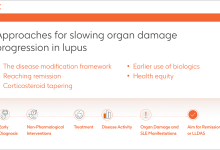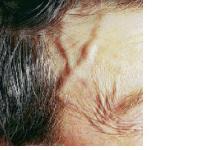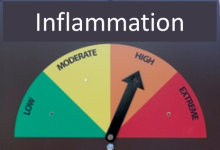Pregnancy Updates That Will Change The Way I Practice Save

ACR Convergence is truly drinking from the proverbial fire hose. It’s a beautiful mash-up of basic science and treatment updates meets guidelines, recommendations, and disease identification. My goal when attending any conference is to learn as much as I can, synthesize that information, and bring you clinically relevant morsels for you to consider for your practice.
Below are two abstracts related to autoimmune patients and pregnancy risks, and my take home practice updates.
It’s generally accepted that cardiovascular complications can arise in normal pregnancies and that that risk can nearly triple for our autoimmune patients. Abstract #0722 details a retrospective analysis of California pregnancies from 2005 – 2020 identifying those with autoimmune rheumatic diseases, APS, and acute CV events during pregnancy and throughout 6 weeks postpartum. As expected, Dr. Dhital et al found the risk of CVEs was significantly higher in pregnant women with SLE with concomitant APS followed by primary APS, SLE with nephritis, and autoimmune rheumatic diseases compared to the normal population. Importantly, 25-30% of these cardiovascular events happened in the post-partum period. These patients were monitored for 6 weeks after delivery, but perhaps we need to monitor them more closely and for a longer post-partum period. I will now be placing more emphasis on patient education regarding the post-partum CVE risks and monitoring my patients closely throughout this time frame.
Continuing with theme of adverse pregnancy outcomes, abstract #0468 from UTSW in Dallas analyzed electronic medical records from the TriNetX US Collaborative Network, to identify pregnancies in autoimmune skin disease patients using ICD-10 coding. Dr. Keum et al searched for alopecia areata, bullous pemphigoid, cicatrical pemphigoid, dermatitis herpetiformis, cutaneous lupus erythematosus, epidermolysis bullosa acquisita, morphea, pemphigus foliaceus, pemphigus vulgaris, vitiligo, and amyopathic DM to be included in the study. Patients with other autoimmune diseases were excluded. They found that patients with autoimmune skin diseases were more likely to have spontaneous abortions and preeclampsia/eclampsia compared to healthy controls. Interestingly, these rates were similar to those of patients with RA. However, compared to SLE patients, they were less likely to have preterm birth, PPROM, and IUGR. This study highlights the importance of educating our patients and ourselves regarding these risks for our patients with autoimmune skin disease. Given the rates of these risks, I plan to educate my PCP, OB and MFM teams to optimize patient outcomes and to seek early and consistent monitoring for patients.
Stay tuned for more, clinically useful education from the RheumNow.com team during our continued #ACR23 convergence coverage.







If you are a health practitioner, you may Login/Register to comment.
Due to the nature of these comment forums, only health practitioners are allowed to comment at this time.